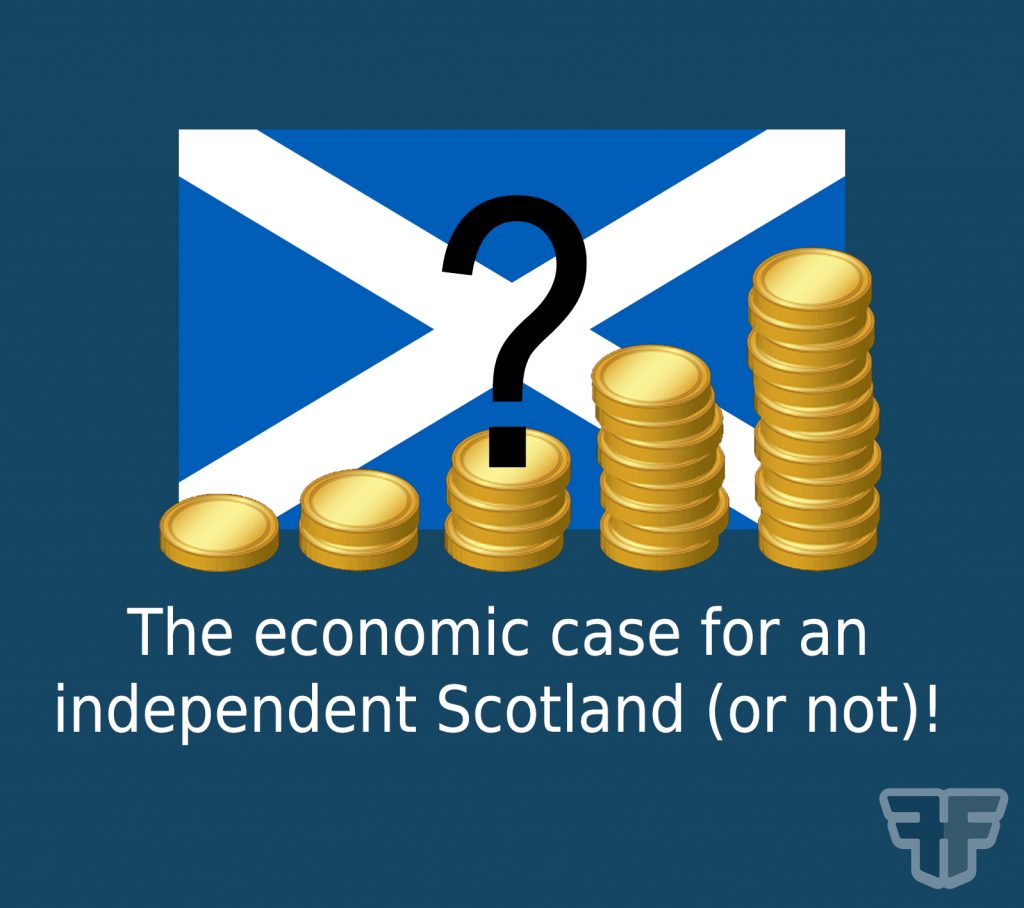Following Scottish local elections, the SNP (Scottish National Party) fell just short of an overall majority in the Scottish devolved assembly responsible for any devolved matters. However, looking at the others result it is clear that a majority of members were returned on a “pro-independence” ticket!
Arguments about whether this is the right time (given the Corona-virus etc) will continue to rumble but here are a few of the questions we would be asking before making any decision!
What would happen to Scotland’s continued use of the pound?
Like it or not, Sterling (AKA the UK £) is an internationally recognised “reserve bank status” currency. Meaning it is globally recognised place to put your money. This, alongside the UK being a historically law abiding and politically stable country means that Governments, companies and people around the world are happy to borrow the UK money in the almost certain knowledge, the UK government will eventually pay it back and if you need your money back, you can sell the government IOU’s if necessary.
In turn, this allows Scotland (as part of the UK) to borrow at extremely low costs to plug any deficits (ie: when they spend more than they raise in taxes) which has been the case for many years now. How would Scotland and its borrowing needs be judged in the markets? With no track record of their own it would be very likely borrowing costs would increase.
What about the Bank of England?
The recognised central bank of the UK is the Bank of England. For example, the BofE sets interest rates taking account of the entire UK. In a nutshell, if inflation rises, interest rates would rise and vice versa. If Scotland was an independent nation, no account of Scotland’s financial circumstance and ultimately stability would need to be taken and therefore meaning Scotland would lose control of a “major economic lever” in economically uncertain times! In essence, the Bank of England would make decisions based on the needs of England, Wales and Northern Ireland only leaving Scotland tied to a currency with no say in how it is run!
Would Scotland join the EU?
Under current rules, any new member of the EU would have to adopt the Euro and therefore Scotland would not retain the pound. This would inevitably then bring a “hard border” between England and Scotland. England takes 60% of Scotland’s exports, whereas the EU takes around 20%. A border will result in increased costs and taxes meaning Scotland’s exports of whisky and salmon for example would become more expensive and thereby (in theory) reducing demand.
Scotland’s economy and the diversification of the economy?
Scotland and in particular Edinburgh is a key financial hub and many large banking institutions are based there. Lloyds Banking Group, RBS/NatWest and Standard Life all have significant presence but if Scotland gained its independence, they would likely be forced to relocate huge swathes of their operations back to England (given their UK based regulator (the FCA) would likely require it). This would blow a massive hole in Scotland’s economy. As the huge oil fields are de-commissioned in the future (as the world goes green) this would also bring another huge part of its economy under pressure. The Scottish economy is not particularly well diversified to cope with 2 huge economic holes and losing 2 major industries. We are not even getting started on the agriculture argument of trading over a “hard border”!
Taxes would rise!
English readers may not actually know this but another devolved matter is the ability to raise local income taxes in Scotland. On income over £25,296, the Scottish tax rate is already 21% (1% higher than in England!). However, statistics show, tax raised per person is £300 lower whereas expenditure is £1,600 greater than the UK average. If Scotland can no longer borrow to cover their shortfall it would be inevitable that taxes would need to rise!
Of course, the decision is a Scottish one but the implications of leaving the UK run far deeper and uncertain that anyone alive could possibly fathom. It could bring the UK and Scotland into crisis. We will always continue to understand the arguments and alter our exposure to economic conditions as they change on the ground. If you need help building your Financial Fortress, get in touch with your local experts today!

